【新唐人2011年11月26日訊】廣東省委書記汪洋日前強調深化體制改革,他說「自己革自己的命很困難」,並批評政府「不肯放權」。與此同時,廣東省宣佈放寬社團登記,汪洋提出,要捨得向社會組織「放權」。外界分析,汪洋近日默許廣東示威、暫停新聞禁令等動作頻頻,意圖在中共十八大搏上位。
11月22號,在廣東省深化體制改革工作會議上,汪洋強調,要敞開大門搞改革。他說:「改革和走路一樣,不怕慢,就怕站。」
汪洋批評政府不信任群眾,他指出:「很多部門開會就說,它們放了多少多少權,其實都不是關鍵的權,要命的都沒放。」
汪洋在廣東各地推行的並不是真正的政治體制改革,而是行政管理體制改革,包括精簡機構「大部制」改革、公務員聘任制改革、行政審批制度改革,以及社會體制改革等等。
香港《動向》雜誌主編張偉國表示,汪洋的體制改革,並沒有觸及到中共一黨專制的根本。
張偉國:「這樣做至少證明他還想與眾不同吧。面對十八大這樣一個時限,面對薄熙來咄咄逼人的那種挑戰,他在廣東應該講是有天時地利。所以,這個選擇作為他個人於公於私都是比較明智的。」
廣東省日前宣佈推進社會組織體制改革,降低各類民間組織登記門檻,簡化登記程序。
汪洋說,要加大政府職能轉移管理力度,捨得向社會組織「放權」。凡是社會組織能夠「接得住、管得好」的事,都要逐步交給它們。
張偉國:「汶川地震以後,我們看到中國的NGO,就是一些非政府組織在社會救濟過程當中發揮了巨大的作用。但是因為中共的維穩,所謂把一切只要是非共產黨控制的組織,全部扼殺在萌芽當中。汪洋如果不但能說這個話,而且拿出具體的行動來,給非政府社會組織一個生存的空間,那我想廣東就可能變成政治特區了。」
香港《開放》雜誌總編輯金鐘錶示,在十八大權鬥的背景下,重慶薄熙來「唱紅打黑」儘管影響很大,但很多人反感,再要走紅的、左的道路,那完全是歷史的倒退。
金鐘指出,汪洋走的是另外一條路,他走的路比較務實、比較開放、比較大膽。但共產黨政治上不開放,汪洋所採取的做法將會有很大的困難。
張偉國:「共產黨現在已經是窮途末路,維穩已經到了一個極限,如果下面的各路諸侯能夠根據自己的情況走出一條路來,也許給共產黨再喘一口氣,否則的話大家等於同歸於盡。」
目前,太子黨薄熙來「唱紅打黑」已經失勢,進十八大常委已遭到胡溫的抵制。另一個太子黨習近平也被外界認為是保守左傾、強硬派人物,接班總書記之位則遇到團派汪洋的挑戰。
《南方都市報》11月15號發表文章讚揚胡耀邦、趙紫陽的改革功績,深圳作家朱健國認為,這篇文章還有促使習近平政治改革的意思。
而《維基解密》公布的一份美國外交電文披露,多位消息人士指出,如果習近平真的是胡錦濤的接班人的話,他們會擔憂習的領導能力和中共政改的前景。上海美國研究所所長丁幸豪哀痛的說,習近平在浙江和上海的唯一成就就是「甚麼都不做」。
外界評論指出,中共既得利益集團早已沒有政治改革的動力了,但是仍然希望在中共垮臺的時候,中共領導人當中能有葉利欽式的開明人物出現,對和平解體中共發揮作用。
新唐人記者常春李元翰、周天採訪報導。
Wang Yang promotes system reform based on Decentralization
Secretary of CCP Guangdong Municipal Committee,
Wang Yang, recently stressed to deepen system reform,
saying, "it's very difficult to against your own life”.
Wang criticized the authorities' “unwiling to decentralize”.
Meanwhile, Guangdong authorities announced to ease
registration requirements for social organizations.
Wang Yang proposed to decentralize to the social groups.
Analysts say that Wang Yang's recent approval of
local demonstrations and
releasing of press embargos are aiming at political
promotion at the CCP's 18th congress.
On November 22 in Guangdong, Wang Yang stressed
at a working conference on deepening the reform,
to widely open the door to reform,
"undertaking reform is the same as walking,
don't be afraid of slowness,
but of stopping part of the way."
Wang Yang criticized the CCP authorities who do not trust
the people, saying, "
A lot of departments said at meetings how much they had
decentralized, but what they had decentralized were not the key powers."
What Wang Yang has implemented across Guangdong is not
a real political reform, but an administrative system reform.
The reform contains streamlining the organization,
civil servant engagement reform,
the reform of administrative approval, and
social system reform, among others.
Editor-in-chief of Hong Kong's Trends magazine,
Zhang Weiguo, comments that Wang Yang's reform
did not touch the root of CCP's one-party dictatorship.
But his reform has some positive effects.
Zhang Weiguo said: "At least, this can prove he wants
to be unusual.
Facing the time limit of CCP's 18th congress,
and Bo Xilai's aggressive challenges, he has gained favorable supporting Guangdong.
So he made quite a wise choice in view of public
or personal concerns. "
Recently, Guangdong authorities announced plans to boost
the social organization system reform,
lowering registration requirements for various civil
organizations to simplify the registration process.
Wang Yang talked about the intention to intensify
the transfer of government function, to be willing to decentralize to the social organizations.
Wang said that all matters that social organizations have the
capability to deal with or to manage, shall be gradually handed over to them.
Zhang Weiguo added: "Since the 2008 Sichuan earthquake,
we've seen China's NGO(non-governmental organizations)
have play a huge role in the process of social assistance.
But due to CCP's maintenance of stability, all the
non-CCP-controlled organizations have been crushed in the new born egg.
If Wang Yang not only proposes but can put into practice,
a living space for NGO to develop,
then I guess Guangdong will probably
become a special political zone. "
Editor-in-chief of Hong Kong's Open Magazine, Jin Zhong,
said that in the context of power struggle inside the CCP for the 18th congress,
Secretary of the CCP Chongqing Municipal Committee,
Bo Xilai, launched a campaign of “Singing red songs and suppressing the mafias”,
which made a big difference, but is also incurring
much disgust.
So the intention of taking the path of Maoism again would
be a complete regression in the history.
Jin Zhong points out that Wang Yang takes a different path,
a relatively pragmatic, open and bold road.
Due to CCP's closed politics, Wang Yang's
reform could confront great difficulties in the future.
Zhang Weiguo stated: "The CCP is going down death road.
Its stability maintenance has reached a limit.
If its local authorities could manage to explore their own
way, that might help CCP authorities gasp for another breath.
Otherwise, they'll all perish in the common ruin."
The CCP's prince ling, Bo Xilai, has so far flagged,
meeting resistances from CCP President Hu Jintao and Premier Wen Jiabao.
Xi Jinping, another CCP's prince ling, is also considered
as a conservative leftist hardliner,
his potential succession has encountered challenges from Wang Yang,
a key member of Youth League fraction led by Hu Jintao.
Southern Metropolis Daily published an article on Nov. 15,
praising reform achievements made by Hu Yaobang and Zhao Ziyang.
Shenzhen-based writer, Zhu Jianguo, comments that
the article has the intention to push Xi Jinping to carry out political reform.
A U.S. diplomatic cable released by Wikileaks revealed that
several sources worried about Xi Jinping's leadership
capability and CCP's prospect of political reform,
if Xi became Hu's successor.
Director of Shanghai Institute of American Studies,
Ding Hao, said sorrowfully that during Xi Jinping's tenure
in Zhejiang and in Shanghai,
Xi's only achievement was "doing nothing."
Comments point out that the CCP's stakeholders
have already no any impetus for political reform.
But they still expect that when the CCP authorities collapse,
an enlightened person like Yeltsin could appear among
the CCP's leadership to play a role in the peaceful
disintegration of the CCP authorities.
NTD reporters Chang Chun, Li Jing and Sun Ning
看下一集
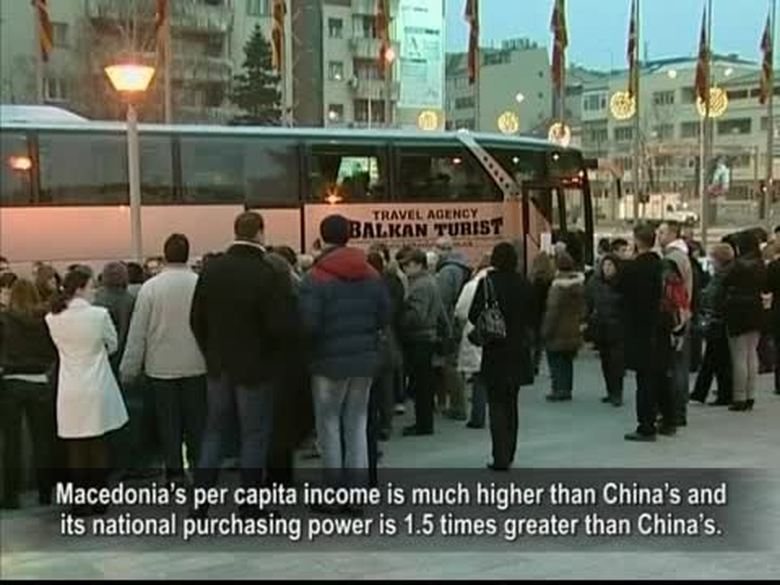
【禁聞】中國校車予馬國 中共外交成援交?
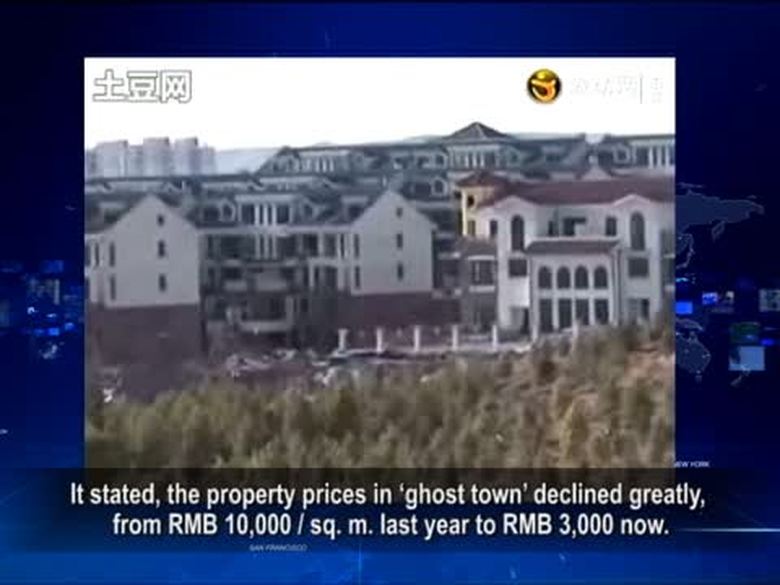
【禁聞】鄂爾多斯傳噩耗 房地產風暴臨近
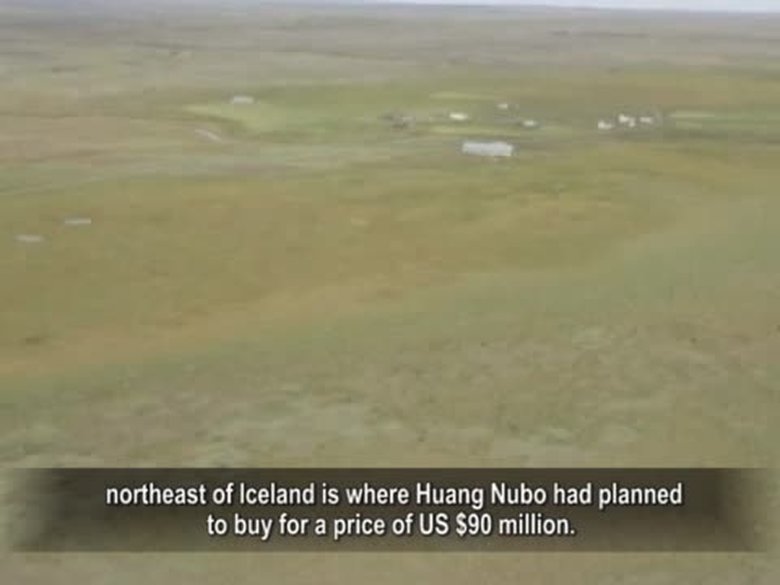
【禁聞】疑替政府圈地 黃怒波冰島買地被拒
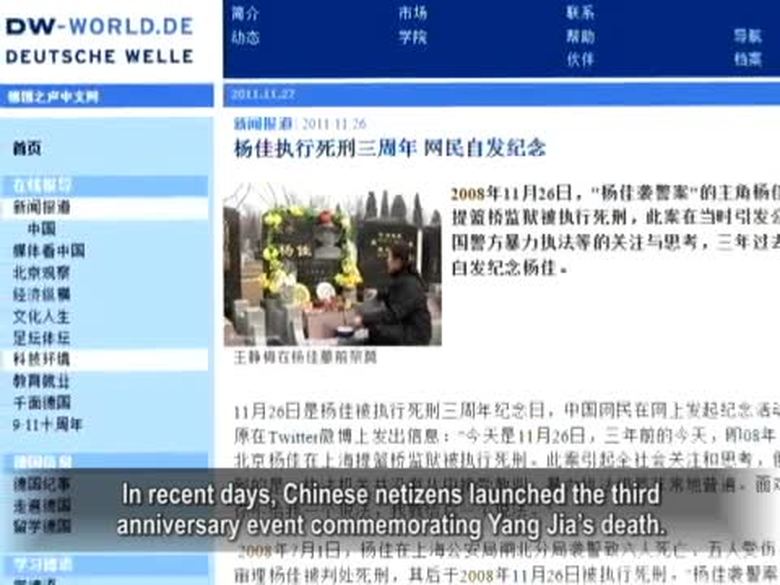
【禁聞】紀念楊佳 表達不滿
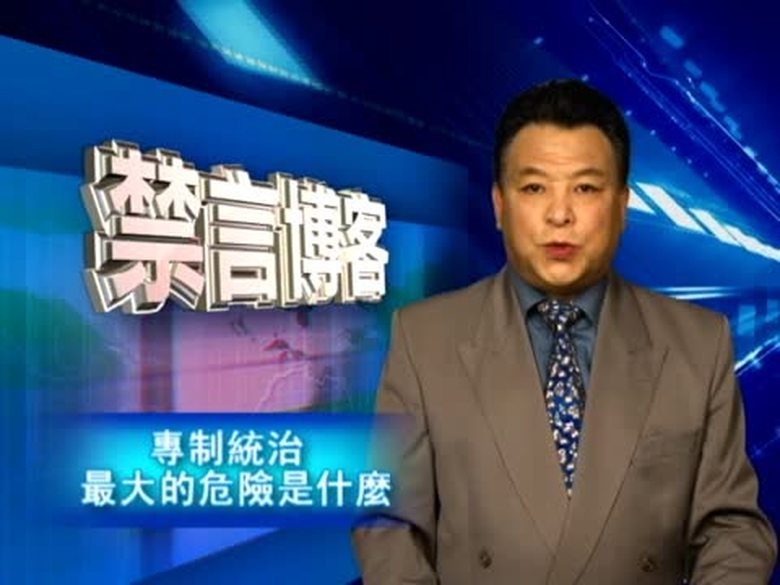
【禁言博客】專制統治最大的危險是甚麼
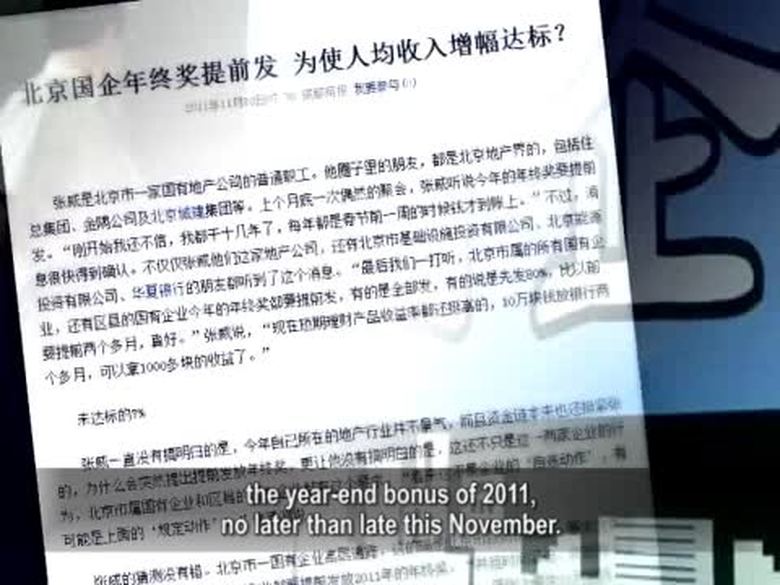
【禁聞】為保指標 北京令國企提前發年終獎
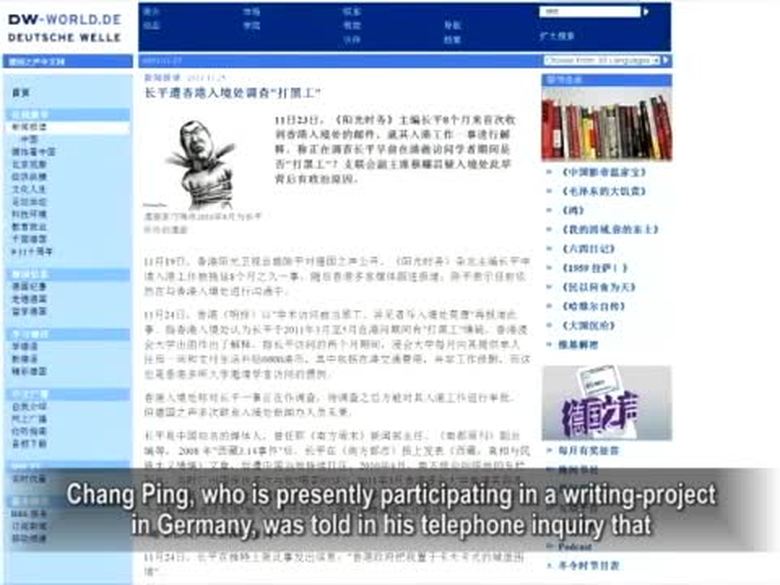
【禁聞】長平簽證受阻 疑港府配合中共
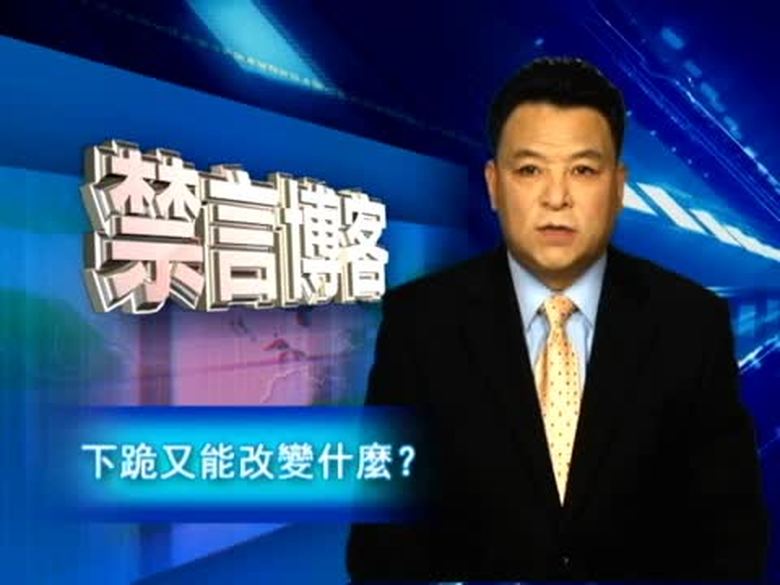
【禁言博客】下跪又能改變甚麼
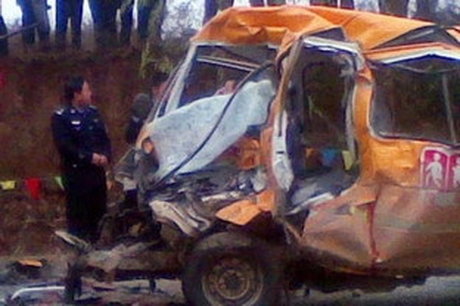
【禁聞】溫總發話整校車 財政來源誰落實
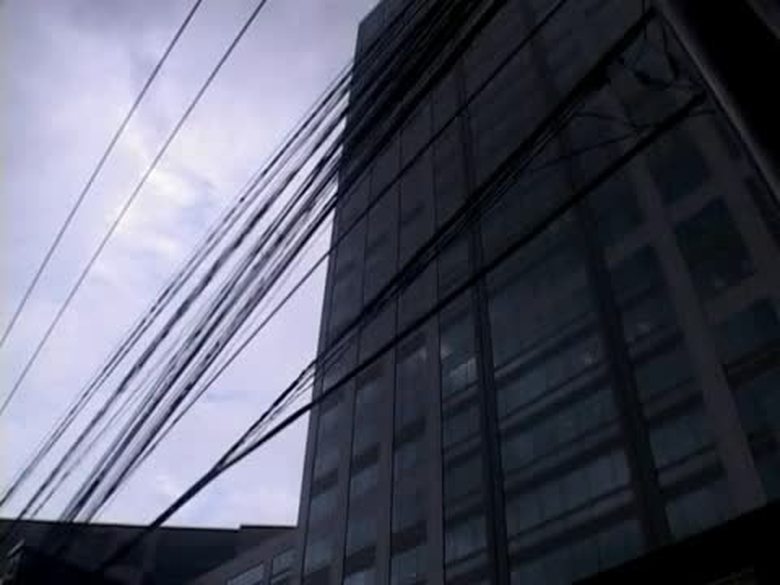
【禁聞】高校頻換掌門 “官員返校”引關注

【禁聞】公務員考試「考德」 考甚麼?

【禁聞】廣電總局又出招 電視劇禁播廣告
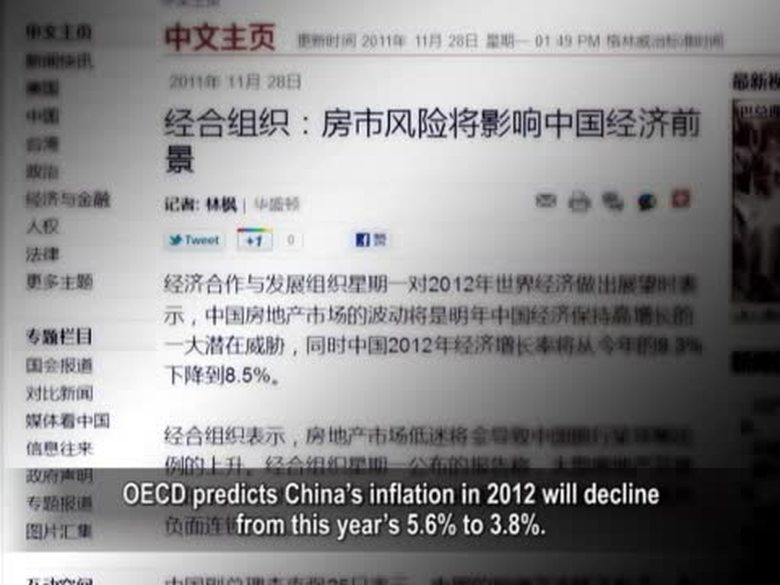
【禁聞】中國房地產泡沫破裂利弊 專家評析
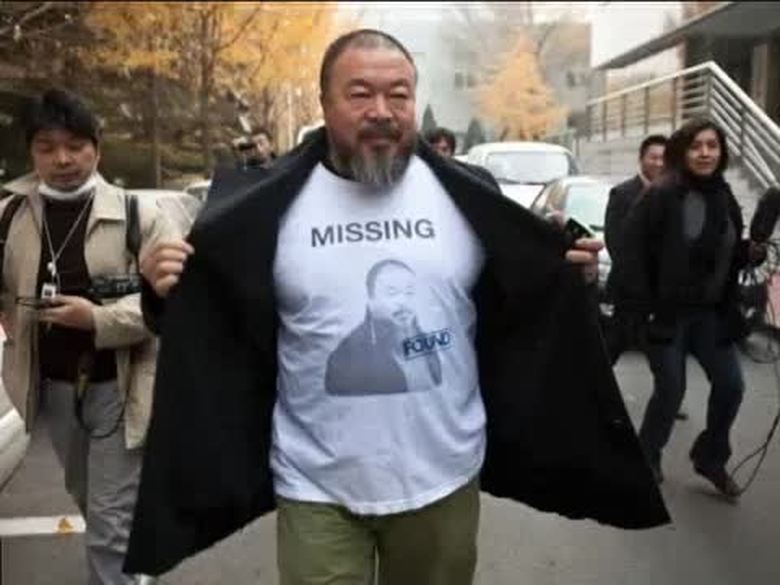
【禁聞】艾未未入選全球百位思想家

【禁聞】揭血污十罪 陳秉中冒死三諫胡錦濤
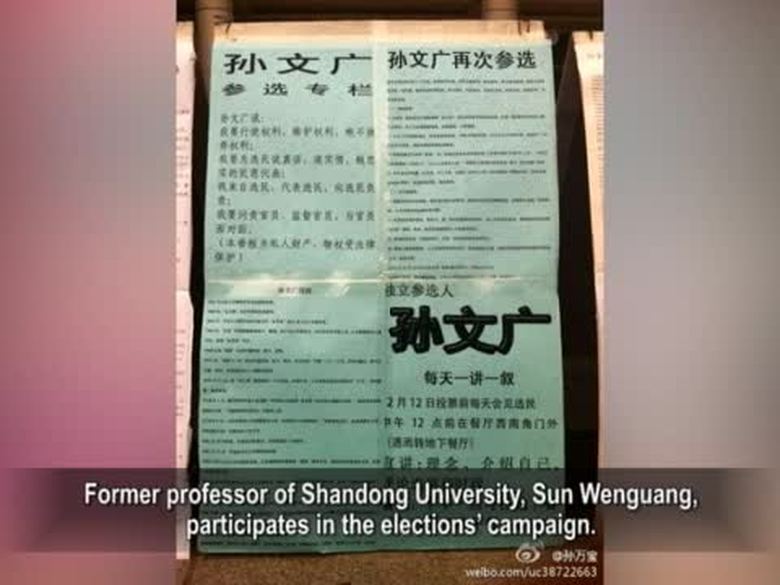
【禁聞】孫文廣力爭參選 揭中共操縱選舉








